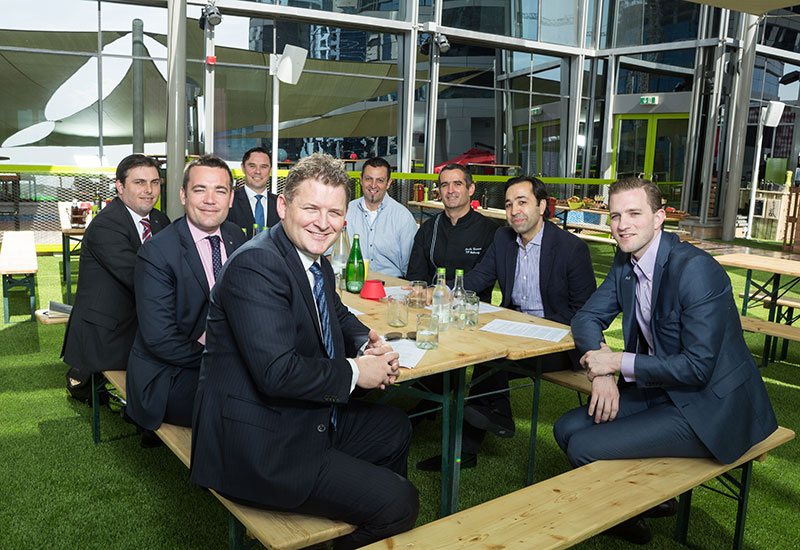According to STR Global, total food and beverage accounts for approximately 37% of hotel revenue across the Middle East, which is probably the highest worldwide, and this is growing by 5-10% each year. In fact, Doha generates more revenue from F&B than room’s revenue, demonstrating the importance placed on profitability of F&B in Middle East Hotels.
Many hoteliers believe third-party managed outlets are the future, while others insist that since catering is the spine of hospitality, in-house concepts are vital to four- and five-star properties. Others maintain that a balanced approach is best, with new hotels often opting for a combination of in-house and third-party concepts.
At Hotelier’s F&B roundtable, regional and in-house F&B directors and experts came together in Dubai at Media One Hotel’s new outlet, Garden on 8, to discuss the opportunities and challenges faced in properties where third-party managed and in-house concepts co-exist, with topics such as profitability, expertise, staffing and payroll the order of the day.

| Advertisement |
Why has the prevalence of third-party F&B brands increased so noticeably in the region’s hotels in the last 10 years?
Sadettin Kaya: Eight or nine years ago hotels were able to generate revenues based on in-house guests. That’s not the case anymore. Now you can just leave your hotel and go next door and try something else, you don’t have to stay in your hotel.
Naim Maadad: Monopoly is a big thing as well. Ten years ago you didn’t have enough people in Dubai that would want to dine out five nights a week. Whereas today, that’s the case and it’s also about complementing your offer.
Marc Gicquel: There was much less competition at the time, less hotels and less restaurants so you opened the door and you had thousands of people coming in. Also 10 years ago there was a very limited number of operators on the market that could drive and run those types of third-party concepts. The market has shifted, there are many more good operators on the market for us to tap in to as well as more brands available.
Sadettin: There’s one more factor unique to the Middle East market, and it is the alcohol licence. In most cases international brands wouldn’t operate within a hotel because they don’t have to. In Dubai some brands coming with really great offers to operators have to be in a hotel because otherwise they can’t get the alcohol licence and because of that the hotel brands are more and more likely to have a third-party operator within their hotel. They could run the same outlet within their local or internal concept but they would not have the same success,or image, or footfall as they have working with international brands.
Sascha Triemer: I wouldn’t even be surprised if soon you see Dubai concepts that come from here, like Qbara and other concepts, going into hotels in Europe as third parties.
Article continues on next page ...









 Search our database of more than 2,700 industry companies
Search our database of more than 2,700 industry companies









